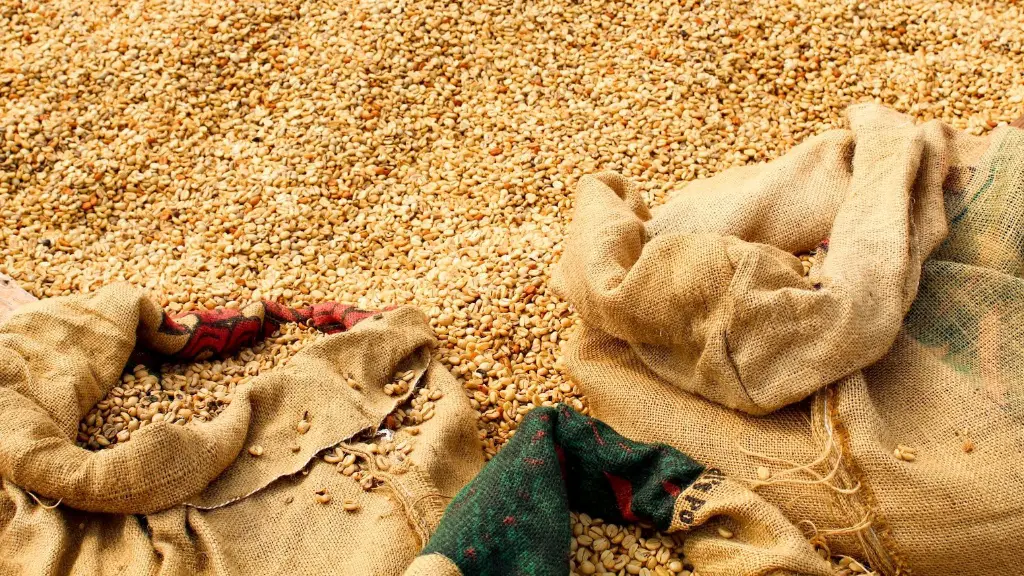Food poisoning can be a serious health concern and it presents itself in many different ways. From nausea, vomiting and diarrhea to fever, weakness and abdominal cramps, food poisoning can leave you feeling pretty awful. In many cases, the body can recover fairly quickly with some rest and a bit of extra water, but what about when it comes to caffeine? Should you drink coffee after food poisoning?
People have been drinking coffee for hundreds of years and it’s long been known to offer people both physical and mental benefits, but is it safe to have a cup when dealing with food poisoning? The answer really depends on the severity and nature of the ailment itself. In most cases, it is probably better to avoid caffeine when dealing with food poisoning, and medical experts agree on this point. Caffeine can lead to dehydration, which can be especially detrimental to those suffering from food poisoning, as they are already dealing with severe dehydration.
Caffeine can also make the symptoms of food poisoning worse. It can cause nausea, vomiting, and can even exacerbate abdominal cramping. In addition, caffeine is a stimulant and can increase the heart rate and blood pressure, which could make someone dealing with food poisoning more uncomfortable and lead to further complications. Most medical experts recommend avoiding caffeine during recovery from food poisoning as it can make dehydration worse and exacerbate the symptoms of the illness.
If you are feeling up to it and want to try a cup of coffee, it is okay to have a little bit, but try to stick to decaffeinated coffee or tea. Try to drink plenty of fluids, like water or bone broth, as these will help to rehydrate the body and provide essential nutrition and vitamins to help with recovery. Eating small meals of easily digestible foods will also help to get you back on track. Additionally, getting plenty of rest and taking time to relax can help to speed up the healing process.
In conclusion, while coffee can offer many benefits during times of wellness, it is probably best to avoid it when dealing with food poisoning. Caffeine can act as a diuretic and can actually worsen dehydration. In addition, it can worsen the symptoms of the illness and could make recovery even more difficult. It is best to stick to decaffeinated coffee, or tea, and plenty of fluids and rest to aid in recovery.
What Are the Causes of Food Poisoning?
Food poisoning can be caused by a wide range of things, including bacteria, viruses, parasites, toxins, and even certain chemicals. Bacteria such as Salmonella, E. coli, and Listeria are some of the most common causes of food poisoning. Typically, food poisoning is caused by food that has been mishandled, such as not being kept at the right temperature or not being cooked properly. Other common causes of food poisoning include cross-contamination between food products, inadequate hygiene and handwashing, and consuming food that has been exposed to contaminants or bacteria.
It is important to note that the risk of food poisoning increases significantly in certain situations. For instance, people who are pregnant, elderly, very young, or have a weakened immune system are at higher risk. Additionally, people who have had recent surgery or are on certain medications are also more likely to develop food poisoning. In any of these cases, it is advised to be extra cautious and avoid anything that could further weaken the immune system, such as caffeine.
Diet Changes After Food Poisoning
Diet plays an important role in recovery from food poisoning. It is best to start with small, easily digestible meals and gradually return to a normal eating routine. Bland, high-protein foods such as oatmeal, soup, and rice are all good options. Avoiding spicy and acidic foods is also recommended, as these can further irritate an already sensitive digestive system. Additionally, it is best to avoid alcohol and caffeine, as these can worsen the symptoms of food poisoning and delay the healing process.
A balanced diet after food poisoning should be focused on incorporating whole and nutrient-rich foods that are easy to digest. Eating fresh fruits and vegetables, lean proteins such as fish, eggs, and poultry, and whole grains is a great way to get enough energy and nutrients to help with recovery. Additionally, it is important to stay hydrated and include plenty of fluids as this helps to replenish lost electrolytes and other nutrients. If you’re feeling up to it, light exercise and relaxation can also help to boost your immune system and aid in recovery.
Complications of Food Poisoning
Food poisoning is usually nothing to be overly concerned about; most cases are mild and can be treated with basic home remedies. In some cases, however, food poisoning can lead to more serious health complications, particularly if the illness is not treated in a timely manner. Severe dehydration is one of the most common complications of food poisoning, as it can interfere with the body’s ability to absorb nutrients and flush out toxins. This can lead to further symptoms such as fatigue, dizziness, and headaches.
In severe cases, food poisoning can cause kidney failure, depression of the immune system, and even death. The risk of these complications is highest in people with weakened immune systems, such as elderly people, pregnant women, and young children. For this reason, it is important to be aware of the symptoms of food poisoning and seek medical help if the illness does not improve or worsens.
Prevention of Food Poisoning
The best way to prevent food poisoning is to be extra diligent in the kitchen. Maintaining good hygiene, washing hands frequently and thoroughly, and preparing food properly are all essential for food safety. It is important to wash raw foods thoroughly and pay attention to any expiration dates. If a food has been sitting out for too long, it should be thrown out if it looks or smells off. Additionally, kitchen tools such as cutting boards and knives should be cleaned regularly with hot soapy water to prevent the spread of germs.
It is also important to store food properly; perishable items should be kept at the right temperature and stored away from other foods to avoid cross-contamination. Leftovers should also be stored properly and should be consumed within two days of cooking to minimize the risk of food poisoning. Finally, it is important to pay attention to any food recalls and throw away any food that could be contaminated.
What Are the Benefits of Coffee?
Coffee has many health benefits that people can benefit from when drinking in moderation. It is a rich source of antioxidants, which can help protect the body from cell damage. Additionally, it can boost energy levels and even help to improve mental clarity and concentration. Coffee can also help to reduce inflammation in the body, which can help reduce the risk of certain diseases. Additionally, drinking coffee is linked to a lower risk of certain types of cancer and can help to improve heart health.
Coffee can also help to improve digestion and assist with weight loss, as it can help boost metabolism. Additionally, it can help to strengthen bones, reduce the risk of type 2 diabetes, and even lower the risk of developing depression and dementia. Ultimately, coffee can offer many health benefits when consumed mindfully and in moderation.
Are There Risks of Drinking Coffee?
Coffee does have some risks associated with it, especially if it is consumed in excess. It is a stimulant, which can cause heightened levels of anxiety and restlessness if consumed too much or too often. Too much caffeine can also lead to insomnia and a general feeling of being on edge. Additionally, some people are more sensitive to the effects of caffeine than others, so they may find that they need to adjust their consumption accordingly.
In addition, coffee can worsen the symptoms of certain conditions such as heartburn, Acid Reflux, and some digestive disorders. It is best to consult a doctor if you are unsure, as they can offer personalized advice on how much coffee is safe to consume. Additionally, if you are pregnant or breastfeeding it is important to be mindful of caffeine consumption, as it can pass through the placenta and be passed on to newborns.
Conclusion
In conclusion, it is probably best to avoid caffeinated beverages such as coffee when dealing with food poisoning. Caffeine can act as a diuretic and can make dehydration worse, as well as exacerbate the symptoms of the illness. It is best to stick to fluids such as water and decaffeinated tea, as well as eat small meals of easily digestible foods. As with any illness, it is important to rest and to seek medical help if symptoms persist or worsen. Finally, it is important to take precautions and follow food safety guidelines to avoid food poisoning altogether.




